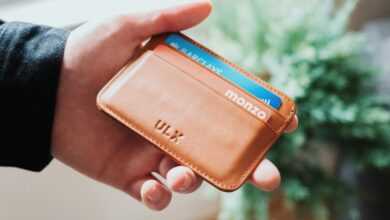What is Ethereum and How to Buy It Safely

Before engaging in any transaction involving Ethereum, ensure you choose a reputable exchange. Opt for platforms with strong security measures, user reviews, and established track records. This minimizes risks associated with scams or hacks.
Setting up a reliable wallet is crucial. Consider hardware wallets for maximum security, as they store your private keys offline. For smaller amounts or frequent transactions, software wallets can be convenient but ensure that they offer robust encryption and backup options.
Always activate two-factor authentication (2FA) on accounts related to your digital assets. This adds an additional layer of protection against unauthorized access. Be cautious of phishing attempts; verify URLs before entering sensitive information.
Monitor market trends and price fluctuations of ETH. Using limit orders can help you buy at desired price points without the need for constant monitoring. Research thoroughly before making any investment decisions.
How to Buy Ethereum Safely
Utilize a reputable exchange for transactions. Look for platforms with high security measures and positive user feedback.
- Verify the exchange’s regulatory compliance and track record.
- Enable two-factor authentication (2FA) on your account.
Before purchasing, set up a secure wallet. Hardware wallets are preferable for long-term storage of eth:
- Select a well-reviewed hardware wallet, such as Ledger or Trezor.
- Follow the manufacturer’s instructions to initialize and secure your device.
Transfer purchased assets directly into your wallet rather than keeping them on an exchange:
- Create a unique receiving address from your wallet.
- Double-check the address before initiating any transfers.
Avoid public Wi-Fi when accessing exchanges or wallets. Always connect through a secure network to mitigate risks of interception.
Stay informed about current trends in blockchain technology and potential scams. Regularly update your wallet software and remain vigilant against phishing attempts.
Your private keys must remain confidential. Store them offline if possible, and never share them with anyone.
Identifying Reliable Exchanges
Always select exchanges that have a strong reputation within the crypto community. Check for user reviews and feedback on platforms like Reddit or specialized forums to gauge trustworthiness.
Look for exchanges with transparent operational practices. Ensure they provide clear information about their fees, security protocols, and customer support options. A reliable platform will openly share its policies and terms of service.
Verify if the exchange complies with regulatory standards in your jurisdiction. Platforms that adhere to local laws often implement stricter security measures, which adds an extra layer of protection for your assets.
Examine the security features offered by the exchange, such as two-factor authentication (2FA), cold storage for funds, and regular security audits. These aspects are critical in safeguarding your wallet from potential threats.
Consider liquidity levels on the exchange. Higher trading volumes indicate a robust marketplace where you can buy or sell eth without significant price fluctuations. Look for platforms that consistently rank high in trading activity.
Finally, assess the ease of use and interface design. An intuitive platform enhances your experience, allowing you to focus on transactions rather than navigating complex menus or processes.
Securing Your Wallet
Use hardware wallets for the safest storage of your assets. Unlike software wallets, hardware devices store private keys offline, minimizing exposure to online threats. Consider options like Ledger or Trezor for robust security.
Enable two-factor authentication (2FA) on your wallet and associated accounts. This extra layer of protection requires a second form of verification, significantly reducing the risk of unauthorized access.
Keep your recovery seed safe. When setting up a wallet, you receive a recovery phrase that allows you to restore access if needed. Write it down and store it in a secure place, avoiding digital copies that can be easily hacked.
Regularly update wallet software. Ensure you’re using the latest version of your wallet application to protect against vulnerabilities. Updates often include essential security patches that address known issues.
Avoid phishing attacks. Be cautious with emails or messages requesting sensitive information. Always verify URLs before entering any credentials and use bookmarks for frequently visited exchanges or wallet sites.
Consider multi-signature wallets for added security. These require multiple private keys to authorize transactions, making unauthorized access much more difficult. This is particularly useful for shared accounts or larger holdings.
Monitor transaction activity regularly. Keep an eye on your account activity for any suspicious transactions. Immediate action can prevent significant losses if something seems off.
Be aware of public Wi-Fi risks. Avoid accessing your wallet while connected to unsecured networks. Use a VPN service if you must connect from public locations to encrypt your internet traffic.
Create strong passwords. Choose complex passwords combining letters, numbers, and symbols, and consider using password managers to keep them organized and secure.
Diversify storage options. Don’t keep all your assets in one place; consider spreading them across different wallets and exchanges for added safety against potential breaches.
Avoiding Common Scams
Always verify the legitimacy of any platform before making transactions. Look for established exchanges with a strong reputation in the blockchain community. Check for security features like two-factor authentication and SSL encryption to protect your information.
Beware of phishing attempts that mimic well-known services. Always access websites directly through your browser rather than clicking on links from emails or messages. Ensure the URL is correct, especially when entering sensitive data related to your wallet.
Don’t trust promises of guaranteed returns or investment opportunities that seem too good to be true. Scammers often use high-pressure tactics to rush decisions, aiming to exploit your enthusiasm for ETH. Take time to research before engaging in any offer.
Be cautious with unsolicited advice or social media promotions that encourage you to buy crypto quickly. Genuine projects provide transparent information about their operations and team members, while scams may hide behind anonymity.
Regularly update your wallet software and use hardware wallets for added security against hacking threats. Keep private keys confidential; sharing them can lead to instant loss of funds.
Finally, always conduct thorough research on new tokens before investing. Examine whitepapers and community discussions to gauge credibility and ensure you are not falling victim to pump-and-dump schemes common in unregulated markets.







